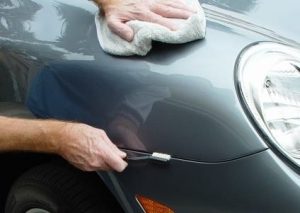
Are you a car enthusiast dreaming of owning a vintage car? Vintage cars not only have a timeless charm but also serve as a great investment. However, buying a vintage car requires careful research and consideration. To ensure you uncover hidden treasures and make a worthy purchase, follow this comprehensive vintage car buying guide.
1. Determine Your Budget
Before you begin your vintage car hunt, it’s essential to establish a budget. Vintage cars can vary significantly in price, depending on factors such as their condition, rarity, and desirability. Research the current market prices and set a realistic budget within your means.
2. Define Your Preferences
Vintage cars come in various shapes, sizes, and styles. Determine your preferences to narrow down your search. Are you drawn to the sleek lines of a classic sports car or the elegance of a vintage luxury sedan? Knowing what you love will help you focus on finding the perfect vintage car.
3. Research Different Models
Once you’ve defined your preferences, start researching different vintage car models. Look for models that resonate with your style and have a reputation for reliability. Study their history, specifications, common issues, and parts availability. This knowledge will prevent you from falling in love with a car that may become a source of frustration and excessive costs.
4. Assess the Condition
Inspecting the condition of a vintage car is crucial before making a purchase. Vintage cars usually require maintenance and restoration, but the extent of work needed varies. Determine if you’re comfortable with a car that requires extensive restoration or if you prefer a car in excellent original condition.
If possible, seek professional help from a mechanic or a vintage car specialist to perform a thorough inspection. They can identify hidden issues, estimate restoration costs, and advise on the overall condition of the car.
5. Check for Authenticity
Authenticity is paramount when purchasing a vintage car. Look for matching numbers, original parts, and documentation that validates the car’s history. The authenticity of a vintage car significantly impacts its value and desirability among collectors.
If you’re uncertain about a car’s authenticity, consult with experts or join vintage car forums to seek advice from experienced enthusiasts. They can help spot potential red flags or confirm the legitimacy of a car.
6. Test Drive and Research Driving Experience
Don’t forget to test drive your potential vintage car. Vintage cars have unique driving experiences due to their age, design, and mechanical features. Ensure you’re comfortable with the driving experience and can handle any quirks that come with it. It’s crucial to enjoy the ride as much as you appreciate the aesthetics.
Researching others’ experiences with the same model can provide insights into common driving issues and maintenance requirements. Online forums, vintage car clubs, and social media groups are excellent platforms to connect with other vintage car owners and seek their advice.
7. Set a Realistic Timeline
If you’re buying a vintage car that requires restoration, set a realistic timeline for the work to be done. Vintage car restoration can be time-consuming, depending on the extent of work needed and the availability of parts. Ensure you have the patience and resources to dedicate to the restoration process.
8. Consider Storage and Maintenance
Vintage cars require proper storage and maintenance to retain their charm and value. Consider if you have adequate space to store the car safely and protect it from the elements. Additionally, factor in the cost and availability of maintaining a vintage car, including regular servicing, specialized repairs, and sourcing rare parts.
9. Network with Other Enthusiasts
Building a network of vintage car enthusiasts can be invaluable throughout your vintage car buying journey. Attend classic car shows, join vintage car clubs, and participate in events to connect with other owners. They can provide valuable insights, recommend trustworthy sellers, and share their experiences to help you make informed decisions.
10. Be Patient and Persistent
Finding the perfect vintage car takes time and patience. It’s unlikely you’ll stumble upon your dream car in the first attempt. Stay persistent in your search, be patient throughout the process, and don’t rush into making a purchase if you have doubts. The right vintage car will eventually find its way to you.
By following this vintage car buying guide, you’ll equip yourself with the necessary knowledge and insights to uncover hidden treasures. Remember to invest time in researching, inspecting, and seeking expert advice. A vintage car not only holds nostalgic value but can also be a fantastic source of joy and pride for years to come.

